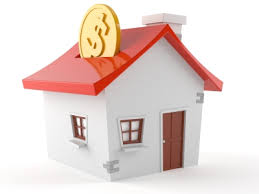Every Real Estate Investor Should Master
November 5, 2014 Leave a comment
When you learn about something, when you are interested in new subjects, you also learn a whole new vocabulary you start using. Well, with real estate investing happens exactly the same. If you are a Real estate beginner or an experienced investor, you must understand and master all the terms and words of the investment vocabulary, especially acronyms, so here is a small list of every acronym a real estate investor should know:
1. PITI
Initials for: Principal (P), Interest (I), property Taxes (T) and Insurance (I). Essentially this means, the “bottom line” or the minimum amount needed when you estimate the acquisition of investment property with a loan. Frequently this is estimated monthly.
This amount is what you would might spend in the investment property over the life of the loan. Every and each month is the frequency of the PITI you have to pay in order to be in good standing. Thanks to this you will know how much rent you should pay.
2. GOI
GOI or Gross Operating Income, is related to the annual income that is collected from the property, including: laundry, parking, storage, etc. and consider any vacancies.
3. LTV
Initials for: Loan-to-Value, this is vital if you’re removing a loan on your investment property, it is estimated by dividing the loan by the property’s value; then, that number is expressed as a percentage. For example, to make it easy: if a loan is $200,000 and price of the property is $250,000, then the LTV is 80%.
You will have more equity in your property and negotiate more if the LTV is lower.
4. DCR
Initials for: Debt Coverage Ratio. This is referred to a commonly used term by lenders when they have to deal with underwriting loans for income-generating properties. How it is calculated? You need to divide the NOI (see below) by the total debt. If the ratios is 1.20 or higher, this is considered the average.
5. NOI
Initials for: Net Operating Income, this is the income left over from your rentals after paying all your monthly operating expenses. So, deduct your expenses from your GOI (Gross Operating Income) to get you the property’s NOI. For example, if you take in $20,000 in leases on all the units you have and spent $6,000 on maintenance including supplies, accounting, taxes, insurance, utilities and more, the NOI for the month was $2,000.
If you felt this information was useful and want to learn more about real estate. You can go to our Official Website and see all the incredible ways we have to offer to invest in real estate.





Top Comments